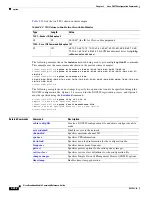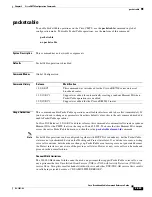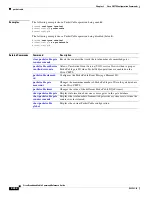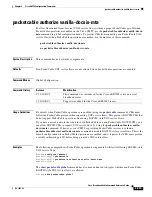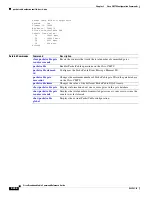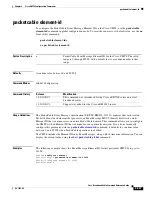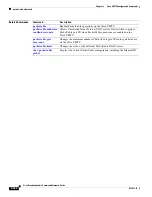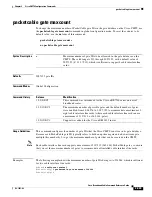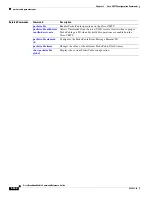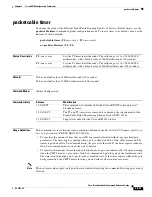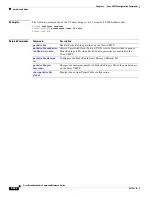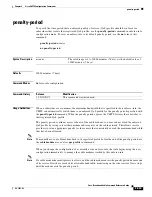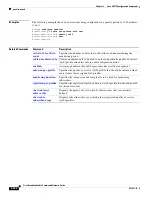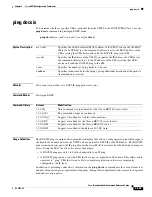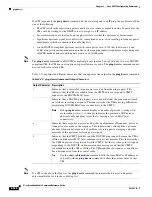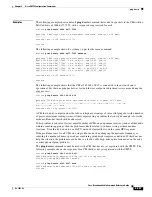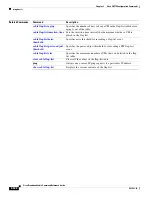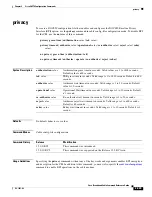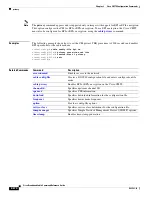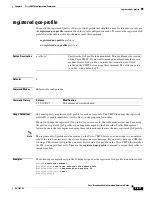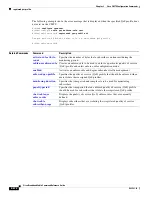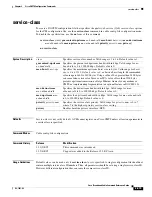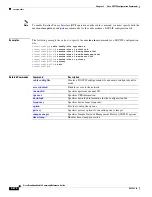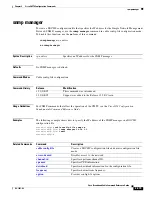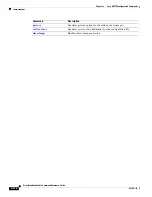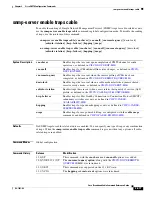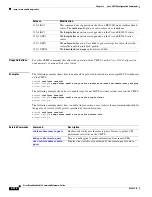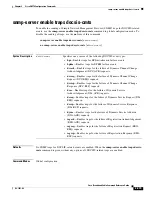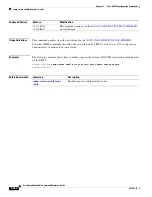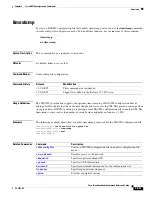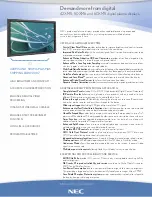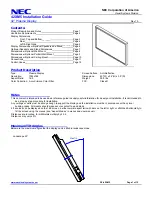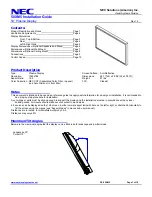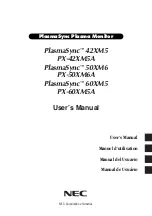
2-466
Cisco Broadband Cable Command Reference Guide
OL-1581-08
Chapter 2 Cisco CMTS Configuration Commands
ping docsis
If a CM responds to the
ping docsis
command, but does not respond to an IP ping, the problem could be
one of the following:
•
The CM is still in the registration process and has not yet come completely online. In particular, the
CM could be waiting for the DHCP server to assign it an IP address.
•
Severe interference or other faults on the physical layer (either the upstream or downstream).
•
Significant upstream signal error, distortion, or amplitude errors, often resulting in frequent power
adjustments (which are shown in the cable flap list).
•
A non-DOCSIS compliant upstream carrier-to-noise power ratio (C/N) that is between 14 and
21 dB, along with a mixed modulation profile, such as ranging request/response messages being sent
in QPSK mode and short and long data grants in 16-QAM mode.
Note
The
ping docsis
command is a DOCSIS-compliant process that can be used with any two-way DOCSIS-
compliant CM; the CM does not require any special features or code. The
ping docsis
command cannot
be used with telco-return CMs.
Table 2-23
explains the different characters that can appear in the output for the
ping docsis
command:
Note
If a CM is already in the flap list, the
ping docsis
command increments the hit, miss, and power-
adjustment fields for it in the cable flap list.
Table 2-23 ping docsis Command Output Characters
Output Character Description
!
Indicates that a successful response was received from the ping request. This
indicates that the CM is reachable from the CMTS and can respond to CMTS
requests at the DOCSIS MAC layer.
.
Indicates that a DOCSIS ping request was sent out but that the ping request timed
out without receiving a response. This indicates that the CM is having difficulties
maintaining DOCSIS MAC layer connectivity to the CMTS.
Note
If the
ping docsis
command displays a number of periods (.) along with
exclamation points (!), it strongly indicates the presence of RF noise or
physical cable and plant issues that is causing a loss of MAC layer
connectivity.
a
Indicates that a response was received but that an adjustment of frequency, power, or
timing was also made in the response. This indicates that, although the upstream
channel is functional, some sort of problem is forcing power averaging and other
misreads of the upstream received power signals.
f
Indicates that the CMTS failed to send the DOCSIS ping request because the CM is
offline, and therefore MAC-layer communication is not possible. This indicates that
the CM had previously registered with the CMTS, but that at some point it stopped
responding to the DOCSIS station maintenance messages and that the CMTS
eventually marked the CM as offline. The CM might have lost power or might have
been disconnected from the coaxial cable.
Tip
Use the
show cable modem
command with the same MAC or IP address as
you used with the
ping docsis
command to show the current status of this
CM.

